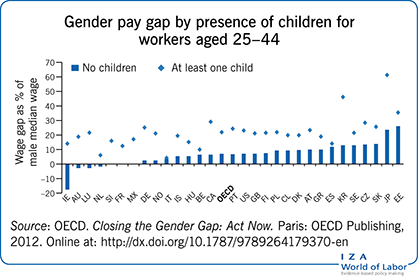Elevator pitch
The motherhood wage penalty denotes the difference in wages between mothers and women without children that is not explained by differences in human capital characteristics and labor market experience. As part of the gender pay gap, the motherhood wage penalty can represent a significant cost to being female and having children. If ignored, it may undermine policy initiatives aiming to increase fertility rates in post-socialist countries, such as the costly “baby bonus,” which is a government payment to new parents to assist with the costs of childrearing.

Key findings
Pros
Post-socialist countries continue to experience low total fertility despite costly pronatalist policies.
The motherhood wage penalty likely reduces fertility.
The motherhood wage penalty can explain the ineffectiveness of baby bonuses.
Policy measures to decrease the motherhood wage penalty may be better alternatives than baby bonuses, which will also reduce the gender pay gap.
Ongoing institutional changes in post-socialist countries are likely to increase the motherhood wage penalty in the future.
Cons
It is complicated to compare estimates of the motherhood wage penalty due to methodological differences.
Direct tests of the motherhood wage penalty’s effect on fertility are not feasible.
More direct evidence is needed on the effectiveness of alternative policies in reducing the motherhood wage penalty.
Evidence on the role of institutional factors mostly comes from developed and only a few post-socialist countries.